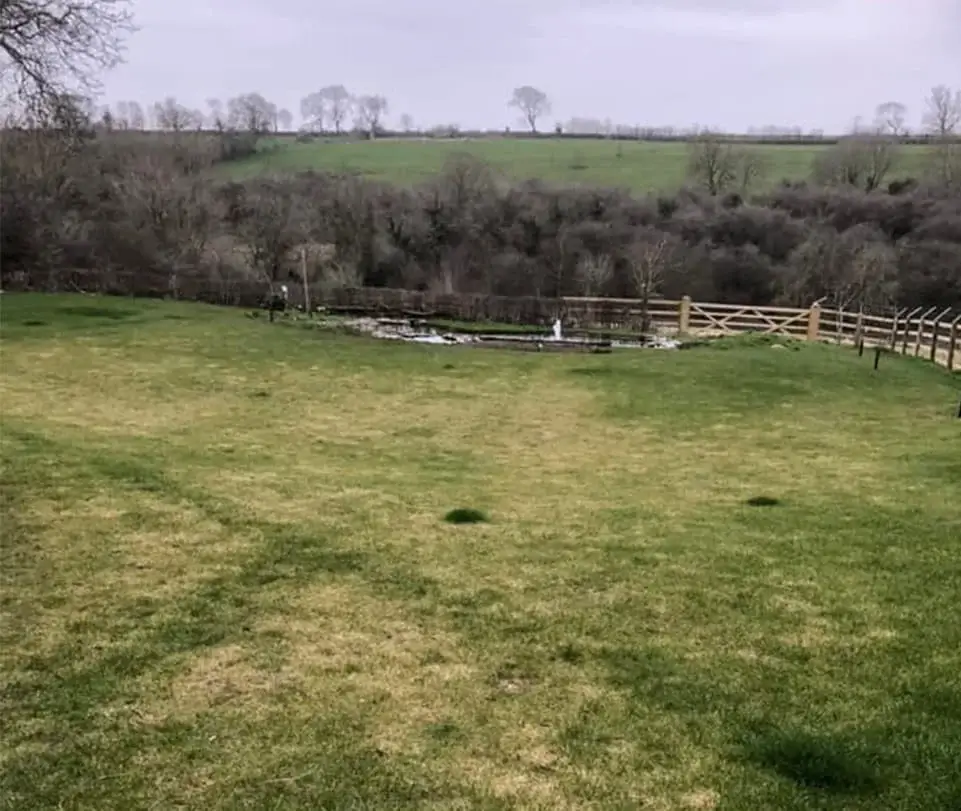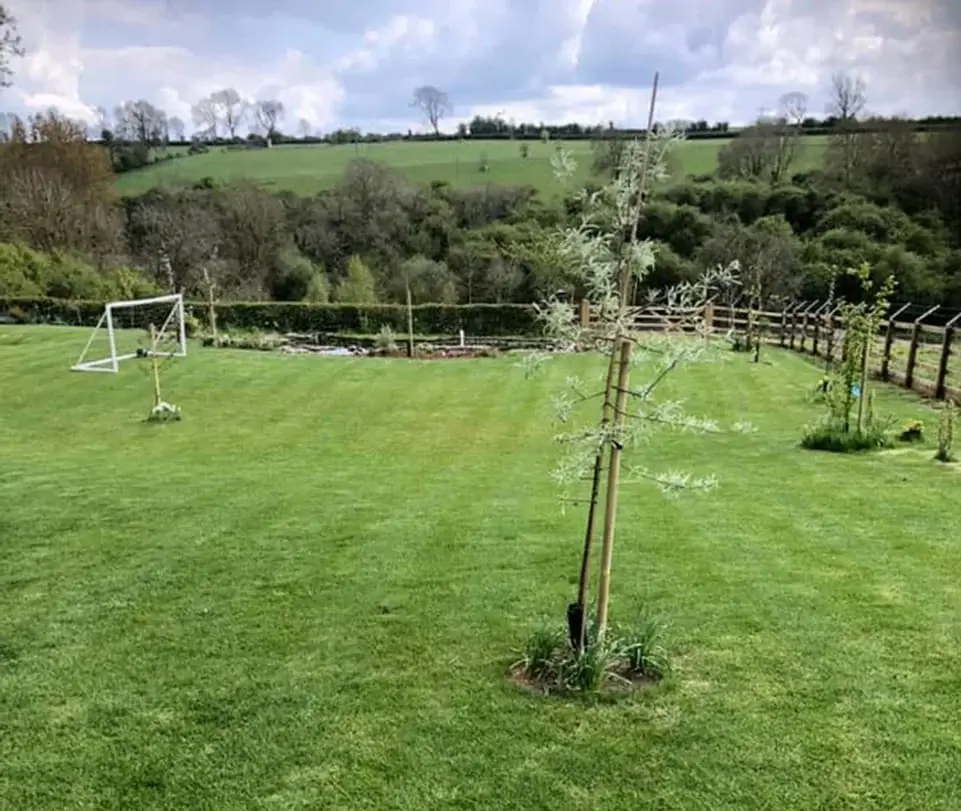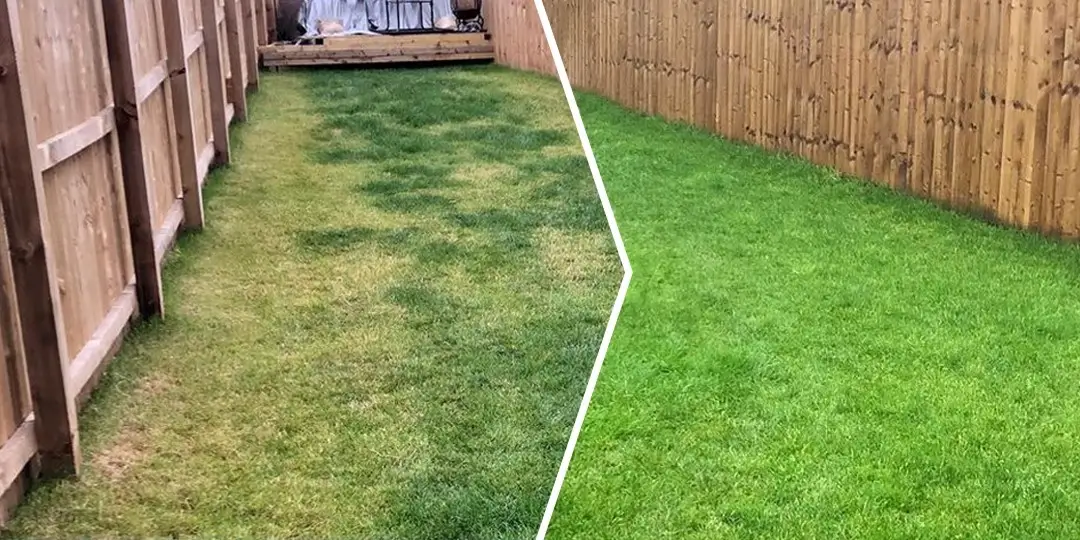When there’s little or no rainfall for a prolonged period of time, lawns can become stressed and start turning brown. When it rains we expect it to help, but sometimes the soil becomes so dry it becomes water-repellent and moisture is unable to move down through the soil profile.
Hydrophobic soil causes pooling of surface water, which can be counterproductive as the water needs to get to the soil in order to benefit the grass plant.
Dry Patch is a common occurrence as a result of hydrophobic soil. The grass will appear dead in patches as the plant is depleted of water. A waxy layer of white mycelium fungus is created which makes the soil hydrophobic. This waxy layer repels water, preventing water penetration.

 AFTER
AFTER
WHEN WE DO IT?
calendar_monthWetting Agents can be applied at any time, including at the same time as feed and weed treatments. We most typically recommend them in summer as they help get better use of any water the lawn receives in dry periods.
WHY WE DO IT?
checklistThe retention of water is longer through the use of the wetting agents, which therefore reduces the overall amount of watering required.
Wetting agents act as a soil penetrant by reducing the surface tension of water to promote quick water infiltration and penetration deep into the soil profile. This means that when you do water your lawn, it will be better absorbed, therefore allowing the grass plant to utilise it properly. This in effect will help stop your lawn drying out as easily.
The retention of water is longer through the use of the wetting agents, which therefore reduces the overall amount of watering required.
Yes, you still need to water your lawn after a wetting agent application. Wetting agents work by reducing the surface tension of water, which makes it easier for the water to penetrate deeper into the soil and reach the roots of the grass. However, wetting agents do not add any water to the soil. You still need to water your lawn to ensure that the grass is hydrated.
You will see results 10 days after wetting agent and water application.

Hold back on the mowing - Keeping your grass a little longer in the summer helps it cope better with dry conditions as the longer grass leaves can retain a larger amount of moisture and morning dew.
Quench its thirst the right way - It’s surprising how quickly lawns dry out. If there’s no rainfall, it’s essential to water your lawn if you want to maintain its green colour. Water in the morning when it’s cooler to help avoid evaporation.
Clear the decks - Move garden furniture and children’s toys off the lawn when they’re not in use to give the grass exposure to sunlight, air flow and rainfall. It will help prevent it yellowing and dying off.
No, Dry Patch is the technical name of the disease that occurs as a result of hydrophobic soil. When soil becomes hydrophobic, it repels any water that it comes into contact with, making it extremely difficult to re-wet the soil at all. The condition occurs due to a prolonged period of severe drought.
Dry Patch can be avoided by ensuring your lawn receives adequate watering on a daily basis when the weather gets hot.
312+ Lawn Care Professionals Employed Nationwide
